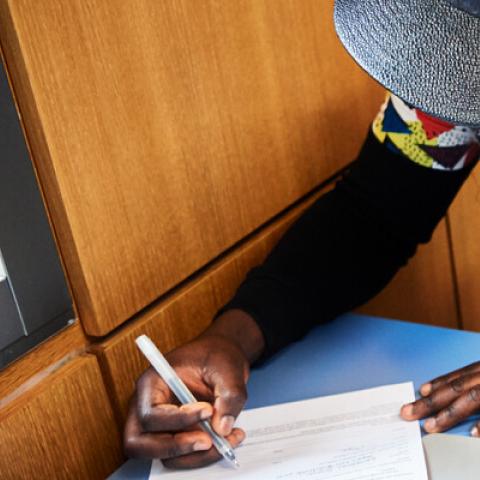
You'll need to cite and reference resources you've read in your academic writing.
You can use direct quotes of others' work if you acknowledge the source and use a citation. This also applies if you paraphrase or summarise what someone else has written. Whenever you decide to use a citation you'll need a reporting verb to introduce it to your text.
In the following case, we've used the verb 'to find':
Malley (1998, p. 26) found that study skills are increasingly used by Higher Education institutions.
Reporting verbs you can use
This table shows reporting verbs for citing others. These verbs aren't always interchangeable so make sure you read your resource carefully and understand the author’s claims before you choose a verb. It's your responsibility to report others’ work accurately in your assignments.
| Reporting something the author did | Reporting something the author stated | Reporting the author's opinion | ||
|---|---|---|---|---|
| Acceptable | Stronger | Acceptable | Stronger | |
|
|
|
|
|
If you're not sure about the meaning of any of the verbs in this table, consider using a dictionary like the Cambridge Learner’s Dictionary to check the word's usage.
Using verbs
You can use reporting verbs in the present tense or past tense, as long as you're consistent throughout your assignment.
Many of the verbs in this table are used with the conjunction 'that'. For example:
- Mahoney (1998, pp. 10–12) established that this reaction is in fact…
- When Smith and Sampson (1989, p. 98) contended that this position was untenable, they were…
However, verbs that can't be used with ‘that’ include:
- Martin and Baker (1980) examined the issue from a different perspective.
Words like 'view' are used with the conjunction 'as', after the subject of the sentence:
- Hui (2001, p. 49) views this explanation as too simplistic. She maintains that…
All the above examples use reporting verbs actively, but you can also use verbs passively. Both following sentences are acceptable:
- Dominguez (2002, pp. 76-79) suggested three possible interpretations of these results.
- Three possible interpretations of these results have been suggested (Dominguez, 2002, pp. 76–79).
Other examples of using reporting verbs in the passive form:
- It has been claimed (O’Shea, 1997, p. 45) that…
- It has been shown that this is not the case (Akabi, 1979, pp. 310–319).
- The practice of…has been questioned (Chopra, 1990, p. 92) because of its…
- These findings have been extensively analysed (Stamford, 2001a, 2001b; Ma, 2002) and interpretations vary from…
You can add adverbs to your reporting verbs if appropriate. These also need to accurately reflect the original material. In the above example, you would need to be sure that the findings had been ‘extensively’ analysed.
The passive from is often used when citing several authors to back up a single point. The example above uses two works by Stamford and one by Ma.
You can also cite an author without using a reporting verb by restating the author’s point or using the phrase ‘according to’. For example:
- Study skills are increasingly used by Higher Education institutions (Malley, 1998, p. 28)
- According to Malley (1998, p. 28), study skills are increasingly used by Higher Education institutions.
Course search

Guidance and support

Enable University alerts
Turn on notifications for critical updates like closures, safety alerts, and urgent service disruptions.









